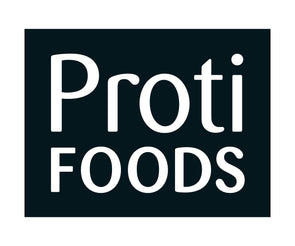
What is a Heart Healthy Diabetic Diet?
The Diabetic Diet is a healthy eating plan that controls blood sugar. Eating the healthiest foods, in moderate amounts, and sticking to regular meal times is the premise of the diabetic diet. It focuses on fruits, vegetables, and whole grains and its positive effects make it the best eating plan for everyone not just diabetics.
Why Follow the Diabetic Diet?
When someone is diagnosed with diabetes or prediabetes, the doctor will send them to a dietician to develop a healthy eating plan that controls blood sugar, manages weights, and controls the risk factors for serious illness such as heart disease.
When we consume excess calories and fats, our body responds by creating an undesirable rise in blood glucose. In addition to diabetes, this leads to a high risk of serious health problems resulting from our dangerously high glucose levels. Long term complications can ultimately cause nerve, kidney, or even heart disease. When we can control our blood glucose, weight loss is made easier.
What Foods are Recommended?
When you meet with a registered dietician, they will come up with a plan that calls for three meals a day at regularly scheduled times. The following foods are recommended when developing your meal plan:
- Healthy carbohydrates. During digestion, sugar and starch break down into glucose. By focusing on healthy carbohydrates, such as fruits, vegetables, whole grains, legumes, and low-fat dairy, we can control our glucose levels.
- Fiber-rich foods. Fiber monitors how your body digests and controls your blood sugar levels. Foods like vegetables, fruits, nuts, legume, whole wheat flour, and wheat bran are all rich in fiber.
- Heart healthy fish. If you are following a diabetic diet, it is recommended that you consume heart healthy fish twice a week. Fish that are rich in Omega-3 fatty acids, promote heart health by lowering triglycerides, which are blood fats.
- “Good fats”- Monosaturated and polyunsaturated fats are considered good fats because they can actually aid weight loss. These include foods such as avocado, almonds, pecans, walnuts, olives, and canola, peanut, and olive oil. Be sure not to overdo it though, because they are still fats!
Foods to Avoid
In addition to recommending food, your dietician will tell you what foods to avoid. It is important to avoid foods that can cause additional health problems.
- Saturated fats such as high-fat dairy products and proteins like hot dogs, sausage and bacon should be avoided.
- Trans fats such as those found in processed snacks, margarines, and baked goods should be avoided.
- Cholesterol such as high-fat dairy and animal proteins like egg yolk and liver are another food to steer clear of.
- Sodium should be limited to less than 2500 mg daily and less than 1500 mg daily for those with hypertension.
In addition to planning what to eat, you should plan what time you will eat your meals. Following a regular, consistent schedule is an important part of this diet. Controlling your portions by using methods such as the plate method or carb counting is the final element of this diet. The plate method splits your plate into three sections. ½ of your plate is recommended to be filled with vegetables, ¼ with protein, and ¼ with starch. In addition, you should consume one serving of fruit of dairy.
In addition to losing weight, the diabetics diet can reduce your risk of cardio disease and even some forms of cancer. Talk to your doctor or dietician about how planning this diet to meet your needs can help you work towards a healthier lifestyle.
